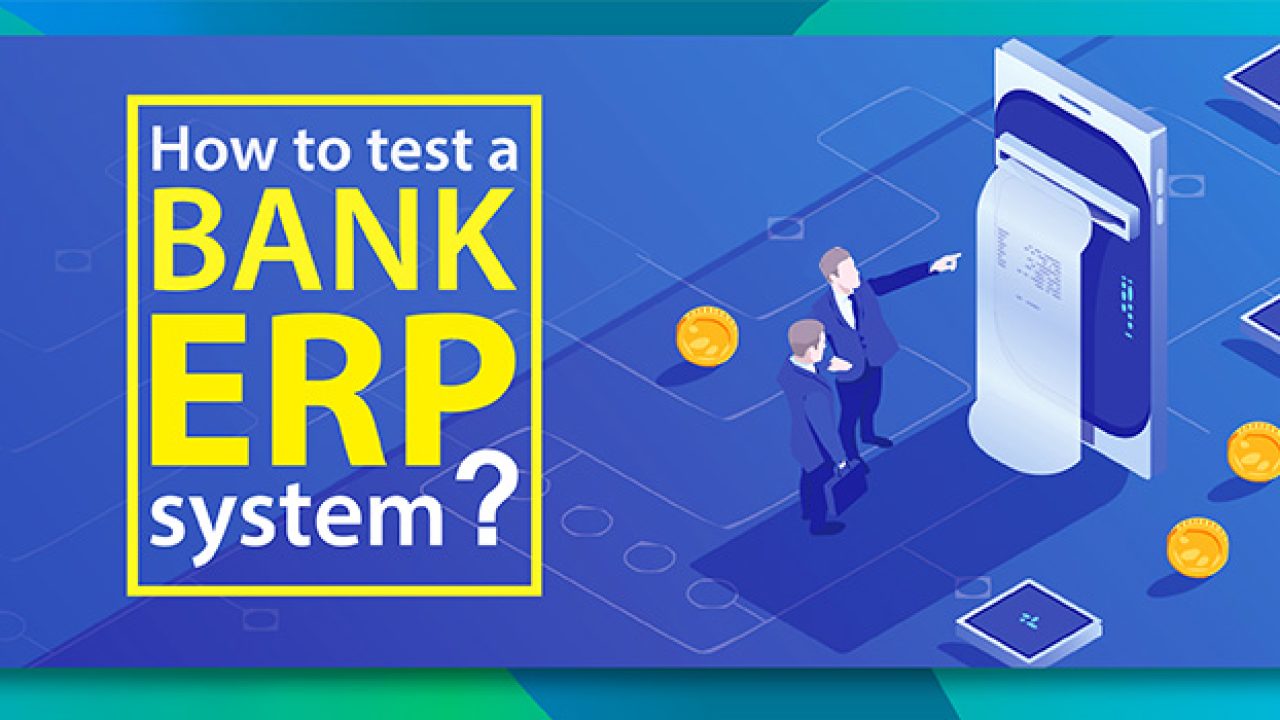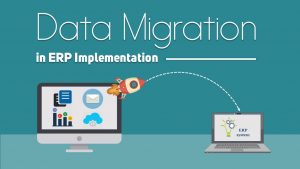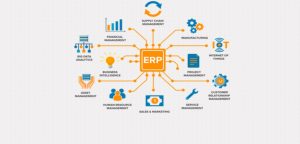ERP for Banking Industry – In the banking industry, protection and privacy management are of the utmost importance. Banking organizations go to great lengths to avoid security breaches and protect their customers’ data.
ERP software (Enterprise Resource Planning) is a centralized platform that stores and analyzes data while keeping it secure. These solutions decrease manual errors and track all financial aspects of the firm efficiently.
This article will address the need for ERP for banking institutions, its merits, and the compulsory modules to look for.

Why is ERP for Banking Industry Necessary ?
Because there is no space for error in the banking industry, banking facilities require cutting-edge systems to assure smooth functioning.
Transparent Communication
Because of the adequate flow of information, ERPs allow for smooth communication across departments and coworkers. This ensures a smooth operation, which is critical in the banking industry.
Integrated Banking Procedures
ERP is a centralized platform that allows you to monitor and control key banking activities 24 hours a day, seven days a week. Banking procedures may be seamlessly connected across all branches and divisions. Data input and report generation are examples of repetitive processes that can be automated, freeing up valuable resources.
Improved Data Security
To safeguard all of your data, a cloud Enterprise Resource Planning system has several intrusion detection methods in place. Banks will have immediate alert systems via ERP, and administrators will be notified if suspicious activity is discovered. ERPs can now monitor all access points, which improves overall security.
Low IT Costs
Switching from a legacy system to a cloud-based ERP with automated functions will significantly lower your IT expense. Because of the lower upfront expenses, the Total Cost of Ownership (TCO) is cheap compared to comparable systems.

Perks of Banking ERP
ERP may integrate multiple organizations in the banking industry and consistently deliver information, resulting in increased productivity. Assist in making business decisions on all fronts. It can, for example, give data-driven judgments in strategic, tactical, and operational planning.
They also propose alternatives for banking functions such as cash accounting, payment services, etc. ERPs deliver extensive tailored reports and visibility into the banking enterprise’s financial status.
Back-office and other monetary systems can be merged into a single ERP system.
ERP facilitates the sharing of various banking procedures with significant stakeholders like customers, vendors, and partners.
ERP solutions allow for real-time monitoring of all transactions.
ERP systems can increase a company’s logistical skills, such as handling non-banking items, cash, and so on.
Crucial Banking ERP Modules to Watch for
If you’re looking for an ERP for your company, ensure it has all the following traits.
Analytical Accounting
Analytical accounting is in charge of accounts receivable, payable, and the general ledger. ERP automates all evidence available, reducing human errors and fraud. Payroll management, tracking and reporting, and specific premium modules also support tax filing.
Asset Management
Specific aspects must be combined and managed jointly for effective asset management. Since all sub-components are interconnected, governance becomes simpler. The asset management module is typically integrated into the financial and accounting components of most ERPs. This ensures that money is not lost due to managerial inefficiency.
Payment Management
The annual software developer summit announcement involves overseeing customers’ funds across all accounts and tracking exchange rates when payments are made in other currencies.
Customer Relationship Management (CRM)
With CRM, an ERP system can assist in maintaining a loyal client base. It can handle a variety of customer complaints from existing customers as well as new lead queries. The CRM module may also analyze and closely watch all marketing activity for sponsors.
NetSuite ERP for Banking Industry
NetSuite is sufficient to meet all of the requirements of a finance ERP. It can execute critical processes and interact with other banking operations through various technologies, such as professional services automation (PSA), customer relationship management (CRM), Business Intelligence, financials, and more.

Top Benefits of NetSuite for Banks:
Forecasts
NetSuite can examine projections of current versus future outcomes utilizing ongoing analysis.
Real-time visibility
Utilize intelligent dashboards to get a rapid overview of overall performance. Improve decision-making with detailed reports that go into the smallest of details.
Audits
To achieve compliance with regulatory requirements, NetSuite maintains openness. To regulate all core processes, it has fact-checking and well-maintained audit trails.
Boost productivity
NetSuite simplifies operations and information, minimizing errors and duplication and improving cross-departmental collaboration.
Control Costs
NetSuite works by ensuring visibility across departments – so that each department understands the budgets they can work within real-time.
Improve agility
Predictive analytics can help you avoid risks and identify opportunities, allowing you to stay competitive in your sector.
If you’re ready to put NetSuite into action in your company? Request a free discussion with Connected IT Consulting specialists.
ERP Project Management
Business Process mapping
Small Business ERP
ERP Consulting



